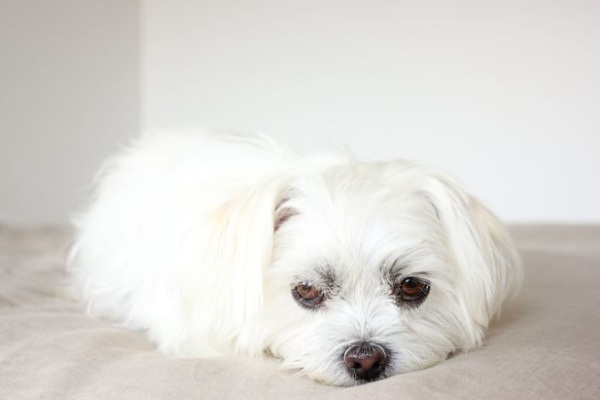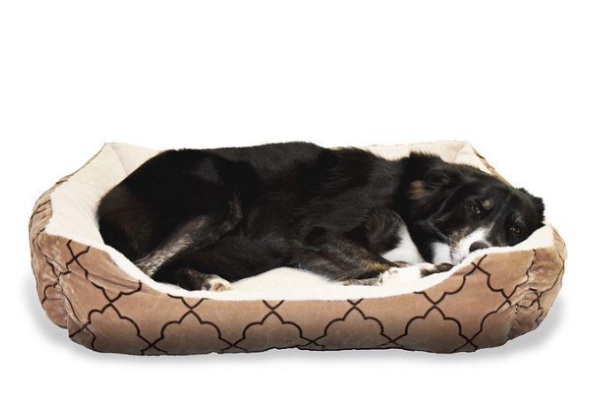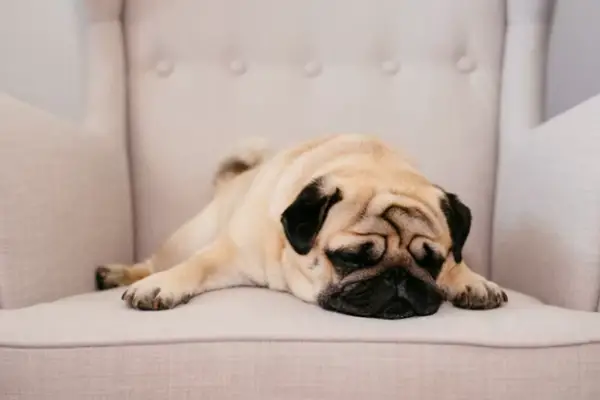Maltese Separation Anxiety (9 Causes, Signs & Control)

Maltese separation anxiety is a serious issue among Maltese owners, as it appears to be one of the most common behavior concerns with Maltese.
I will be discussing the most common signs of separation anxiety in Maltese, I will highlight some common causes of separation anxiety in Maltese.
And finally, I will discuss some common ways to prevent separation anxiety in Maltese dogs. If your Maltese already have separation anxiety, see your vet.
Maltese Separation Anxiety
When a Maltese dog is left alone for a lengthy period of time without being watched, it develops separation anxiety, which manifests itself as excessive barking, biting, and hostility.
Biting, nipping, barking, self-isolation, destructive chewing, and other behaviors are all signs of separation anxiety in Maltese.
Signs of separation anxiety in Maltese
The following are the most common indications of separation anxiety in Maltese that owners should be aware of and evaluate:
1. Chewing of things in owner’s absence
When Maltese dogs are removed from their owners, their things or toys may be scratched, chewed, or destroyed due to separation anxiety.
Your Maltese may have chewed the table legs, doors, window sills, door frames, and even damaged the couch or cushions when you return home.
The most prevalent reasons for hazardous chewing are depression, stress, and loneliness, all of which can be triggered by separation anxiety.
Chewing and digging in your house can lead to injuries such as broken teeth, scrapes, nail or paw damage, and even harm from broken furniture.
2. Potty accidents on owner’s absence
If your Maltese dog has been housebroken but continues to have accidents when you leave the house and return home to find them.
This is a clear indication that your Maltese is concerned about you while you’re gone, and if the problem isn’t handled, it will only become worse.
If your puppy or adult Maltese dog becomes terrified and starts eating his or her own feces, keep an eye on him or her.
You can try to avoid this symptom or just cure the underlying cause of your Maltese’s anxiety, regardless of how unpleasant it is.
3. Clingy behavior during owner’s departure
When your Maltese is terrified of being alone, he will try all he can to get out of the house and find you.
Your dog may damage himself by slamming his head and teeth against the cage bars in an attempt to persuade him to go because he is afraid of being alone.
If your dog tries to escape the house every time you leave, don’t ignore it; it might progress to undesirable behavior.
This is a major issue since it indicates that your Maltese is afraid of being alone, which is a symptom of separation anxiety.
4. Scratching of doors or walls on owners absence
When Maltese dogs are separated from their owners, they endure anxiety and misery, which can lead to clawing at doors and walls.
If your Maltese dog has separation anxiety, you’ll notice him scratching the exit door as you leave for work.
You could also see your Maltese dog scratching at the walls, which is a sign of anxiety brought on by being alone.
Your Maltese dog’s separation anxiety is generating annoyance if you arrive home to find scratches on your walls or doors.
5. Increased self-isolation
Self-isolation may be triggered in most Maltese dogs by a variety of factors, the most common of which is separation anxiety and fear.
When afraid, a Maltese may seek refuge in a little chamber or a piece of the owner’s clothes that smells like him.
Your Maltese dog may urinate inconveniently for hours while curled up beneath the table or elsewhere in the house.
Don’t ignore your Maltese dog’s constant hiding; instead, attempt to figure out why; it might be a health issue or separation anxiety.
In most Maltese dogs, this is one of the most evident indicators of separation anxiety.
6. Freezing on owner’s departure or arrival
Your Maltese dog freezes or gets rigid when you return home from work or leave because he is scared of being alone.
Freezing your Maltese dog all the time can be dangerous to both you and your Maltese, as it can lead to biting and other behavioral problems.
If your Maltese freezes as you walk away, he’s worried and won’t be able to deal with the situation, which might lead to a bite.
Maltese with separation anxiety are known to freeze unnecessarily when their owners leave or return, which is a strong symptom of separation anxiety.
7. Trying to escape on your departure
When your Maltese is scared or has separation anxiety, he will try everything he can to find you or establish new friends outside the house.
Your Maltese may hit his head and teeth against the cage bars, harming himself as a result, all in the name of forcing him to leave because he is terrified.
Keep a watch out for your Maltese dog attempting to flee when you leave the house.
This is a major problem since it means your Maltese dog is terrified of being alone, which can develop separation anxiety.
8. Increased barking behavior
Because of dread, frustration, stress, tension, and loneliness, most dogs with separation anxiety will bark incessantly, which can be an issue for both you and your neighbors.
Separation anxiety can develop over time in some dogs, or it might appear minutes after the owner leaves.
Dogs with separation anxiety may bark excessively when their owners go to work or somewhere else because they are afraid of being alone.
As a result, you should be worried if your dog begins to bark significantly more than usual when you leave or enter.
If your dog starts barking or howling every time you leave the house, look for additional indicators of separation anxiety.
Causes of separation anxiety in Maltese dogs
The following are some of the factors that have been connected to the development of separation anxiety in Maltese dogs:
- Living your Maltese alone unattended for long.
- Not being in contact with all family members but only loved ones.
- The death of a Maltese dog’s beloved owner.
- Continuously changing daily routine of your Maltese dog.
- Changing your environment or moving to a new place.
- Inability to hear or poor vision in your Maltese dog.
- A Maltese being abandoned by owners.
- Making a big deal out of departure or arrival.
- Improper crate training by owner.
How to prevent separation anxiety in Maltese dogs
Here are some of the most frequent and suggested methods for coping with separation anxiety in Maltese dogs:
- Create a safe and calming spot for your Maltese dog.
- Provide proper crate training sessions.
- Provide a clear window view of the outside world.
- Leave your TV or radio on before leaving.
- Create and maintain a daily routine for your Maltese dog.
- Invest in some anti-anxiety products.
- Invest in automatic treat’s dispenser for your Maltese.
- Get a second companion pet.
- Talk to an expert or vet.
- Make time to play more with your Maltese.
- Provide a stress-free environment for your Maltese.
I hope the information provided on this page answers your question about Maltese separation anxiety.






